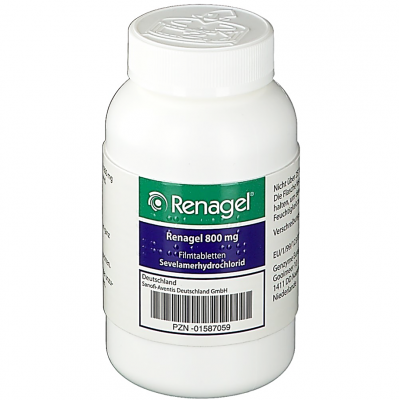- Anti-hestaminic & Respiratory Drugs (20)
- Anti-inflammatory Drugs (192) +-
- Baby & Mom (1327) +-
- Baby & Mom > Bath, skin & Hair > Skin Care > wibes (52)
- Beauty (3052) +-
- Beauty > Skin Care > whitening (307)
- Chemotherapy & Immune Response (883) +-
- Chemotherapy & Immune Response > ANTI-FUNGAL (11)
- Chemotherapy & Immune Response > Chemotherapeutic Agents > Hormone Antagonists >Enzyme Inhibitors (289)
- CIRCULATORY DISTURBANCE AGENTS (24)
- Diet & Fitness Products (284) +-
- DRUG AFFECTING CENTRAL NERVOUS SYSTEM (192)
- HEMATOLOGY (39)
-
Medical Supplies (503)
+-
- Chemicals & Disinfectants (19)
- Dental Supplies (31)
- Devices & Instruments (10)
- Diabetic Supplies (121)
- General Medical Supplies (21)
- I.V & Medical Solution (0)
- Intensive Care Unit & Anesthesia Supplies (0)
- KIDNEY UNIT SUPPLIES (21)
- Lab Supplies (3)
- Miscellaneous (21)
- Neonatal Unit Supplies (0)
- Operation Room Supplies (2)
- Sanitary (5)
- Sterilization Supplies (0)
- Surgical Sutures (4)
- Syringes (3)
-
Medicines & Health (2692)
+-
- Allergy & Sinus (95)
- Children's Health Care (54)
- Cough, Cold & Flu (277)
- Digestive Health & Nausea (230)
- Ear, Nose & Throat Care (179)
- Eye Care (124)
- Feminine Care (325)
- Foot Care (9)
- Orthopaedic Appliances (1)
- Pain Relief & Management (241)
- Pill Organizer (2)
- Skin Treatments (843)
- Sleep & Snoring Aids (2)
- Support & Braces (8)
- Medicines & health > Gout releif (42)
- Natural & Organic Products (81) +-
- OTC > Analgesics > Anti-inflammatory Drugs (44)
-
Personal Care (3279)
+-
- Bath & Body (271)
- Deodorant & Anti-perspirants (191)
- Ear, Nose & Throat Care (175)
- Eye Care (131)
- Feminine Care (374)
- Foot Care (17)
- Hair Care (472)
- Home Tests & Monitorings (14)
- Incontinence (7)
- Lip Care (22)
- Massage & Relaxation (17)
- Natural & Organic Personal Care (7)
- Oral Care (91)
- Pregnancy & Fertility (65)
- Shaving & Grooming (65)
- Sun Care (80)
-
Prescription Drugs (2908)
+-
- Analgesics (181)
- Cardiovascular System (375)
- Drugs Affecting Musculoskeletal System (65)
- Drugs Used In Infections (56)
- Ear & Nose Drugs (2)
- Endocrine System (177)
- Gastrointestinal Tract (241)
- Gastrointestinal Tract > Hepatology > Liver treatment (59)
- GYNECOLOGY (2)
- Miscellaneous (11)
- NEPHROLOGY > URINARY SYSTEM > RENAL DISORDERS > URINARY TRACT DISORDERS (46)
- NEUROLOGY (225)
- Nutrients & Blood Electrolytes (2)
- Respiratory System (154)
- SKIN > NAILS > HAIR > TOPICAL PREPARATIONS (100)
- Vaccines (1)
- Prescription drugs > Cardiovascular system > Anti-hypertension drugs (242)
- Sexual Wellness (301) +-
- Vitamins & Minerals Supplements (1220) +-
Ex Tax: 2,808EGP
Example
You can return the product within 14 days of purchase.
ReturnsYou can return the product within 14 days of purchase.

The medicine can only be obtained with a prescription.
How is Renagel used?
The recommended starting dose of Renagel depends on the level of phosphate in the blood and ranges from 800 to 1,600 mg three times a day. The dose of Renagel should be adjusted to ensure that the blood phosphate level stays below 1.76 mmol/l. Patients should take Renagel tablets whole with meals and stick to their prescribed diets.
In peritoneal dialysis, there has been one study comparing Renagel with calcium acetate in 143 patients over 12 weeks.
In all of the studies, the main measure of effectiveness was the change in blood phosphate levels between the start and the end of treatment.
What benefit has Renagel shown during the studies?
Renagel produced a significant decrease in serum phosphate in all of the studies.
In the comparative study of patients undergoing haemodialysis, there was an average fall of 0.65 mmol/l over the eight weeks of Renagel treatment, compared with 0.68 mmol/l when the patients were taking calcium acetate. Patients taking Renagel had a similar fall in phosphate levels in the second study. In the third, there was an average fall of 0.71 mmol/l over 44 weeks.
In the study of patients undergoing peritoneal dialysis, the patients receiving Renagel had similar falls in phosphate as the patients receiving calcium acetate (0.52 and 0.58 mmol/l, respectively).
What is the risk associated with Renagel?
The most common side effects with Renagel (seen in more than 1 patient in 10) are nausea (feeling sick) and vomiting. For the full list of all side effects reported with Renagel, see the package leaflet.
Renagel must not be used in people with hypophosphataemia (low blood phosphate levels) or with bowel obstruction (a blockage in the gut).
Why has Renagel been approved?
The CHMP decided that Renagel’s benefits are greater than its risks and recommended that it be given marketing authorisation.
What measures are being taken to ensure the safe & the effective use of Renagel?
A risk management plan has been developed to ensure that Renagel is used as safely as possible. Based on this plan, safety information has been included in the summary of product characteristics and the package leaflet for Renagel, including the appropriate precautions to be followed by healthcare professionals and patients.
Other information about Renagel:
The European Commission granted a marketing authorisation valid throughout the European Union for Renagel on 28 January 2000.
The full EPAR for Renagel can be found on the Agency’s website.
For more information about treatment with Renagel, read the package leaflet (also part of the EPAR) or contact your doctor or pharmacist.
Write a review
Your Name:Your Review: Note: HTML is not translated!
Rating: Bad Good
Enter the code in the box below:





